As each year comes to an end, we are always aware of the many books still on our shelves that we wanted to see reviewed in this weekly column. So here, in this first column of the new year, we feature 20 books published in 2018 that we think are just too good to miss.
Ages 4–8
Blue. Laura Vaccaro Seeger. 2018. Neal Porter/Roaring Brook.
 Seeger explores the color blue with stunning acrylic-on-canvas paintings and rhyming two-word couplets (“baby blue / berry blue / maybe blue / very blue”) to tell a story of the bond between a boy and his dog as they grow up together. This companion to Seeger’s 2013 Caldecott Honor book, Green, beautifully expresses the range of emotional responses to the color blue.
Seeger explores the color blue with stunning acrylic-on-canvas paintings and rhyming two-word couplets (“baby blue / berry blue / maybe blue / very blue”) to tell a story of the bond between a boy and his dog as they grow up together. This companion to Seeger’s 2013 Caldecott Honor book, Green, beautifully expresses the range of emotional responses to the color blue.
—CA
The Dreamer. Il Sung Na. 2018. Chronicle.
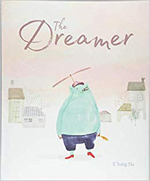 The dreamer in this whimsical picture book is a plump, blue-green pig who wonders if he could ever fly like the birds he admires. He studies, thinks, designs, builds, recruits the help of friends, and modifies plans until one day he does fly and reaches even higher heights than he initially intended. Through this experience, he sees the world differently—and still a dreamer, he continues to admire the birds.
The dreamer in this whimsical picture book is a plump, blue-green pig who wonders if he could ever fly like the birds he admires. He studies, thinks, designs, builds, recruits the help of friends, and modifies plans until one day he does fly and reaches even higher heights than he initially intended. Through this experience, he sees the world differently—and still a dreamer, he continues to admire the birds.
—CBB
A First Book of the Sea. Nicola Davies. Ill. Emily Sutton. 2018. Candlewick.
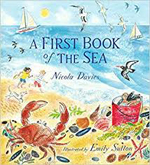 This collection of 53 poems set on expansive double-page spreads with dramatic, realistic watercolor illustrations is organized into four sections—"Down by the Shore,” “Journeys,” “Under the Sea,” and “Wonders.” The anthology is a celebration of the sea, its abundance of plant and animal life, and the joy of playing and exploring at the seaside.
This collection of 53 poems set on expansive double-page spreads with dramatic, realistic watercolor illustrations is organized into four sections—"Down by the Shore,” “Journeys,” “Under the Sea,” and “Wonders.” The anthology is a celebration of the sea, its abundance of plant and animal life, and the joy of playing and exploring at the seaside.
—CA
Hansel & Gretel. Bethan Woollvin. 2018. Peachtree.
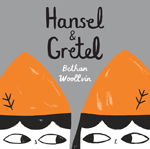 In Woollvin’s imaginative retelling of this classic folktale, Willow, a good witch, encounters Hansel and Gretel in the forest. After nibbling at her gingerbread home, the siblings take advantage of the good witch’s hospitality and misuse her spells and wands. When Hansel and Gretel push her into the oven and continue their mischief until the house is literally bursting with magic, Willow (who “wasn’t ALWAYS a good witch”) finally gets angry and takes revenge in a delightful way.
In Woollvin’s imaginative retelling of this classic folktale, Willow, a good witch, encounters Hansel and Gretel in the forest. After nibbling at her gingerbread home, the siblings take advantage of the good witch’s hospitality and misuse her spells and wands. When Hansel and Gretel push her into the oven and continue their mischief until the house is literally bursting with magic, Willow (who “wasn’t ALWAYS a good witch”) finally gets angry and takes revenge in a delightful way.
—CBB
Little Robot Alone. Patricia MacLachlan & Emily MacLachlan Charest. Ill. Matt Phelan. 2018. Houghton Mifflin.
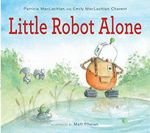 Every morning Little Robot sings a song as he puts on his tracks, charges his battery, and eats breakfast as part of his peaceful—but lonely—daily routine. One morning, inspired by a dream, he creates a perfect companion in his workshop, Little Dog, a robotic pet. A lyrical narration with Little Robot’s cheery song and soft watercolor-and-pencil illustrations make this gentle story perfect for reading aloud.
Every morning Little Robot sings a song as he puts on his tracks, charges his battery, and eats breakfast as part of his peaceful—but lonely—daily routine. One morning, inspired by a dream, he creates a perfect companion in his workshop, Little Dog, a robotic pet. A lyrical narration with Little Robot’s cheery song and soft watercolor-and-pencil illustrations make this gentle story perfect for reading aloud.
—NB
The Patchwork Bike. Maxine Beneba Clarke. Ill. Van Thanh Rudd. 2018. Candlewick.
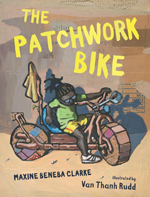 A lively text and stunning textured acrylic-on-cardboard paintings tell the story of three siblings who cobble together a bike from discarded items they find around their “mud-for-walls home” in a village at the edge of a “no-go desert.” Author’s and illustrator’s notes call attention to third-world poverty and celebrate the ability of children to find joy regardless of circumstances.
A lively text and stunning textured acrylic-on-cardboard paintings tell the story of three siblings who cobble together a bike from discarded items they find around their “mud-for-walls home” in a village at the edge of a “no-go desert.” Author’s and illustrator’s notes call attention to third-world poverty and celebrate the ability of children to find joy regardless of circumstances.
—CA
Whale in a Fishbowl. Troy Howell. Ill. Richard Jones. 2018. Schwartz & Wade/Random House.
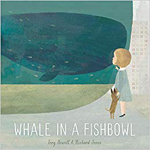 Emotional prose and moody hues capture the melancholy of Wednesday, a whale who lived in a fishbowl in the middle of a gray city. When she leaps up, Wednesday sees “a calm bit of blue” in the distance. She wonders what it is, and with a tremendous leap that tips over the fishbowl (pictured in a vertical gatefold), the spilled water whooshes Wednesday through the city and out to sea, and she finds herself singing for the first time in her life.
Emotional prose and moody hues capture the melancholy of Wednesday, a whale who lived in a fishbowl in the middle of a gray city. When she leaps up, Wednesday sees “a calm bit of blue” in the distance. She wonders what it is, and with a tremendous leap that tips over the fishbowl (pictured in a vertical gatefold), the spilled water whooshes Wednesday through the city and out to sea, and she finds herself singing for the first time in her life.
—CBB
Zola’s Elephant. Randall Sève. Ill. Pamela Zagarenski. 2018. Houghton Mifflin Harcourt.
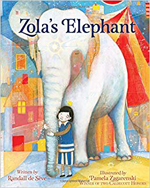 A young girl with an overactive imagination doesn’t want to meet her new neighbor, Zola, who she believes has an elephant with whom she takes baths, plays hide-and-seek, builds a clubhouse, and tells stories (activities portrayed in playful multimedia paintings). Admitting, “I really like elephants,” she finally goes next door and discovers that her assumptions are incorrect and that, indeed, she can be Zola’s new friend.
A young girl with an overactive imagination doesn’t want to meet her new neighbor, Zola, who she believes has an elephant with whom she takes baths, plays hide-and-seek, builds a clubhouse, and tells stories (activities portrayed in playful multimedia paintings). Admitting, “I really like elephants,” she finally goes next door and discovers that her assumptions are incorrect and that, indeed, she can be Zola’s new friend.
—NB
Ages 9–11
Every Month Is a New Year: Celebrations Around the World. Marilyn Singer. Ill. Susan L. Roth. 2018. Lee & Low.
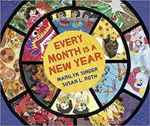 Free verse poems and colorful, mixed-media collage illustrations create a calendar of celebrations of the new year around the world including the midnight ball drop in Times Square in New York City (December 31); Songkran, the Thai New Year Celebration in Thailand (April 13 to 15); and Diwali, the five-day Hindu Festival of Lights, in India in November.
Free verse poems and colorful, mixed-media collage illustrations create a calendar of celebrations of the new year around the world including the midnight ball drop in Times Square in New York City (December 31); Songkran, the Thai New Year Celebration in Thailand (April 13 to 15); and Diwali, the five-day Hindu Festival of Lights, in India in November.
—NB
Lu (Track #4). Jason Reynolds. 2018. Caitlyn Dlouhy/Atheneum/Simon & Schuster.
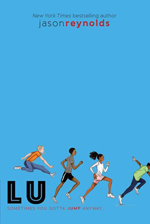 In this conclusion to Reynolds’ series about the members of the Defenders, an elite youth track team, Lu—with the help of his friends, family, and coach—overcomes hurdles on and off the track, as he practices for the championship track meet and faces bullies, accepts his identity as an albino African-American, and begins to understand his father’s past. Most importantly, Lu learns that integrity means “having a gold medal . . . on the inside.”
In this conclusion to Reynolds’ series about the members of the Defenders, an elite youth track team, Lu—with the help of his friends, family, and coach—overcomes hurdles on and off the track, as he practices for the championship track meet and faces bullies, accepts his identity as an albino African-American, and begins to understand his father’s past. Most importantly, Lu learns that integrity means “having a gold medal . . . on the inside.”
—NB
Not One Damsel in Distress: Heroic Girls from World Folklore. Jane Yolen. Ill. Susan Guevara. 2018. Houghton Mifflin.
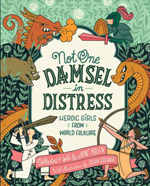 In an introductory letter to her daughter and granddaughters, Yolen states that she wrote this book because she didn’t have a book like it as a child. Her retellings of 15 folktales show that strong, brave, and resourceful girls have always been around. They’ve just been “hidden away . . . in the back storeroom of folklore.”
In an introductory letter to her daughter and granddaughters, Yolen states that she wrote this book because she didn’t have a book like it as a child. Her retellings of 15 folktales show that strong, brave, and resourceful girls have always been around. They’ve just been “hidden away . . . in the back storeroom of folklore.”
—CBB
Pass Go and Collect $200: The Real Story of How Monopoly Was Invented. Tanya Lee Stone. Ill. Steven Salerno. 2018. Christy Ottaviano/Henry Holt.
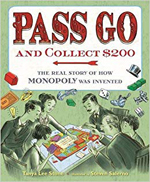 In 1904, Elizabeth Magie patented the board game that we now call Monopoly, which has been played by over one billion people around the world. Lizzie created the Landlord’s Game based on the economic injustices she noticed in 1800s America. Over the years, others have modified the game and tried to take credit for Monopoly, but Stone shares the true story of the game’s inventor. Back matter includes a “Tremendous Trivia! page, some “Monopoly Math” problems, an author’s note, and sources.
In 1904, Elizabeth Magie patented the board game that we now call Monopoly, which has been played by over one billion people around the world. Lizzie created the Landlord’s Game based on the economic injustices she noticed in 1800s America. Over the years, others have modified the game and tried to take credit for Monopoly, but Stone shares the true story of the game’s inventor. Back matter includes a “Tremendous Trivia! page, some “Monopoly Math” problems, an author’s note, and sources.
—CBB
Ages 12–14
Backyard Bears: Conservation, Habitat Changes, and the Rise of Urban Wildlife (Scientists in the Field). Amy Cherrix. 2018. Houghton Mifflin Harcourt.
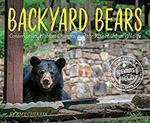 Cherrix, a resident of Asheville, provides a close-up view of “backyard bears” being studied in a five-year investigation of North Carolina’s black bear population as she reports on her in-the-field experiences with biologists from the North Carolina Urban/Suburban Black Bear Study. Cherrix also includes other examples of the rise of urban wildlife around the world.
Cherrix, a resident of Asheville, provides a close-up view of “backyard bears” being studied in a five-year investigation of North Carolina’s black bear population as she reports on her in-the-field experiences with biologists from the North Carolina Urban/Suburban Black Bear Study. Cherrix also includes other examples of the rise of urban wildlife around the world.
—CA
China: A History. Cheryl Bardoe. 2018. Abrams.
 Using artifacts and images from The Field Museum in Chicago, where she was the senior project manager of exhibitions, Bardoe presents a fascinating and accessible history of China, the world’s oldest urban civilization, from prehistoric times to the 21st century, as well as predictions for the future. Back matter includes a time line and detailed notes on artifacts from the museum.
Using artifacts and images from The Field Museum in Chicago, where she was the senior project manager of exhibitions, Bardoe presents a fascinating and accessible history of China, the world’s oldest urban civilization, from prehistoric times to the 21st century, as well as predictions for the future. Back matter includes a time line and detailed notes on artifacts from the museum.
—CBB
D-Day: The World War II Invasion That Changed History. Deborah Hopkinson. 2018. Scholastic Focus/Scholastic.
 Hopkinson’s fascinating and accessible account on the Allied invasion of Normandy on June 6, 1944, focuses on the experiences of Americans at Omaha and Utah Beaches. The narrative, which includes sections called “Briefings” that provide context, “Dispatches” with personal accounts, and “Reporter’s Notebook” entries about reporters and photographers who covered the invasion, is enhanced by maps, archival photographs and extensive back matter.
Hopkinson’s fascinating and accessible account on the Allied invasion of Normandy on June 6, 1944, focuses on the experiences of Americans at Omaha and Utah Beaches. The narrative, which includes sections called “Briefings” that provide context, “Dispatches” with personal accounts, and “Reporter’s Notebook” entries about reporters and photographers who covered the invasion, is enhanced by maps, archival photographs and extensive back matter.
—CA
Thoreau at Walden. John Porcellino. 2018. Disney-Hyperion.
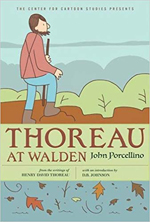 Porcellino tells the story of the two years Henry David Thoreau (1817–1832) spent at Walden Pond with excerpts of Thoreau’s philosophical observations on man’s relationship to nature (“Heaven is under our feet as well as over our heads.”) paired with simple line drawings in graphic novel panels. An introduction describing Thoreau’s life, an afterword by the author telling why he chose to write this book as an “impression of experience,” and a “Panel Discussions” section are included.
Porcellino tells the story of the two years Henry David Thoreau (1817–1832) spent at Walden Pond with excerpts of Thoreau’s philosophical observations on man’s relationship to nature (“Heaven is under our feet as well as over our heads.”) paired with simple line drawings in graphic novel panels. An introduction describing Thoreau’s life, an afterword by the author telling why he chose to write this book as an “impression of experience,” and a “Panel Discussions” section are included.
—NB
Ages 15+
All the Stars Denied. Guadalupe Garcia McCall. 2018. Tu/Lee & Low.
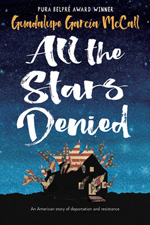 In this companion book to Shame the Stars (2016), which takes place 15 years later, 15-year-old Estrella del Toro, her family, and many in their community, whether citizens or not, have been brutally deported from their Texas homes to Mexico through mass Mexican repatriation during the Great Depression (the first “repatriation” deportation in U.S. history). Estrella and her family must overcome horrific obstacles to be reunited in Texas. Back matter for this timely, thought-provoking historical novel includes an author’s note, a further reading list, and glossary.
In this companion book to Shame the Stars (2016), which takes place 15 years later, 15-year-old Estrella del Toro, her family, and many in their community, whether citizens or not, have been brutally deported from their Texas homes to Mexico through mass Mexican repatriation during the Great Depression (the first “repatriation” deportation in U.S. history). Estrella and her family must overcome horrific obstacles to be reunited in Texas. Back matter for this timely, thought-provoking historical novel includes an author’s note, a further reading list, and glossary.
—NB
Isle of Blood and Stone (Tower of Winds #1). Makiia Lucier. 2018. Houghton Mifflin Harcourt.
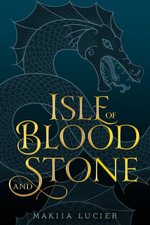 Nineteen-year-old Elias, the royal mapmaker, is set on a quest by his best friend, King Ulises, to solve an 18-year-old mystery: What happened to Elias’ father, Lord Antoni (the Royal Navigator) and Ulises’ two older brothers (one of whom would have become king) who vanished during a picnic along with Elias’ father? Through solving riddles on two cryptic maps and with the help of Ulises, the king’s cousin Mercedes, and sometimes unexpected allies, Elias uncovers unimaginable truths that could change his life and the course of the island kingdom of St. John del Mar in this adventurous fantasy.
Nineteen-year-old Elias, the royal mapmaker, is set on a quest by his best friend, King Ulises, to solve an 18-year-old mystery: What happened to Elias’ father, Lord Antoni (the Royal Navigator) and Ulises’ two older brothers (one of whom would have become king) who vanished during a picnic along with Elias’ father? Through solving riddles on two cryptic maps and with the help of Ulises, the king’s cousin Mercedes, and sometimes unexpected allies, Elias uncovers unimaginable truths that could change his life and the course of the island kingdom of St. John del Mar in this adventurous fantasy.
—NB
A Thousand Beginnings and Endings: 15 Retellings of Asian Myths and Legends. Elise Oh & Elsie Chapman (Ed.). 2018. Greenwillow/HarperCollins.
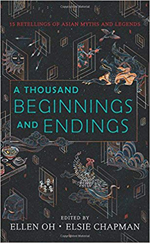 Authors with Asian roots reimagine popular myths and legends in East and South Asian cultures in short stories incorporating folktale elements such as love, fate, malevolence, revenge, and magic that delight and evoke a range of emotional responses. Each story is followed by a note from the author with a description of the traditional tale that inspired its retelling.
Authors with Asian roots reimagine popular myths and legends in East and South Asian cultures in short stories incorporating folktale elements such as love, fate, malevolence, revenge, and magic that delight and evoke a range of emotional responses. Each story is followed by a note from the author with a description of the traditional tale that inspired its retelling.
—CA
Undocumented: A Worker’s Fight. Duncan Tonatiuh. 2018. Abrams ComicArts/Abrams.
 Eighteen-year-old Mixteco Juan crosses the border and takes a job as a busboy in a restaurant where he is underpaid and works 12-hour shifts, seven days a week. After years working under unfair conditions, Juan joins the fight for equal rights for all workers. Tonatiuh’s evocative and timely graphic story about the plight of undocumented workers in the U.S. is illustrated in his signature Mixtec codex style on accordion-fold pages.
Eighteen-year-old Mixteco Juan crosses the border and takes a job as a busboy in a restaurant where he is underpaid and works 12-hour shifts, seven days a week. After years working under unfair conditions, Juan joins the fight for equal rights for all workers. Tonatiuh’s evocative and timely graphic story about the plight of undocumented workers in the U.S. is illustrated in his signature Mixtec codex style on accordion-fold pages.
—CA
Carolyn Angus is former director of the George G. Stone Center for Children's Books, Claremont Graduate University, in Claremont, California. Chelsey M. Bahlmann Bollinger is an assistant professor in the Early, Elementary, and Reading Department at James Madison University, in Harrisonburg, Virginia. Nancy Brashear is Professor Emeritus of English, Azusa Pacific University, in Azusa, California.
These reviews are submitted by members of the International Literacy Association's Children's Literature and Reading Special Interest Group (CL/R SIG) and are published weekly on Literacy Daily.